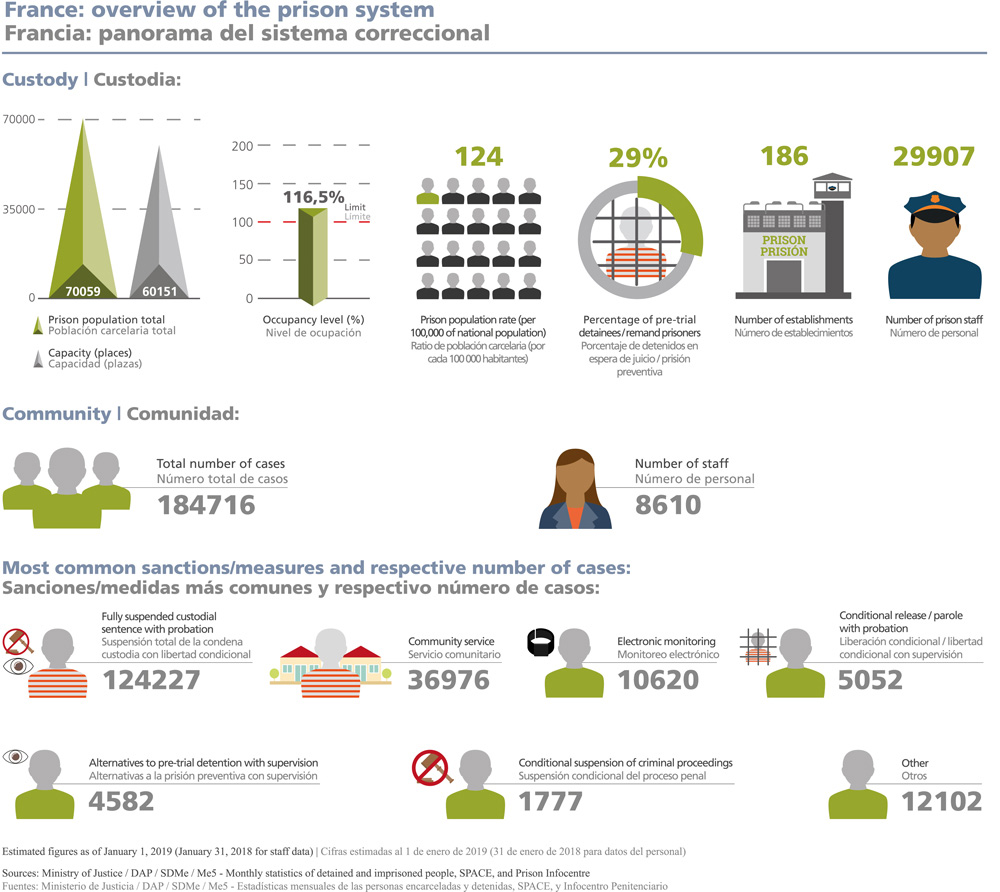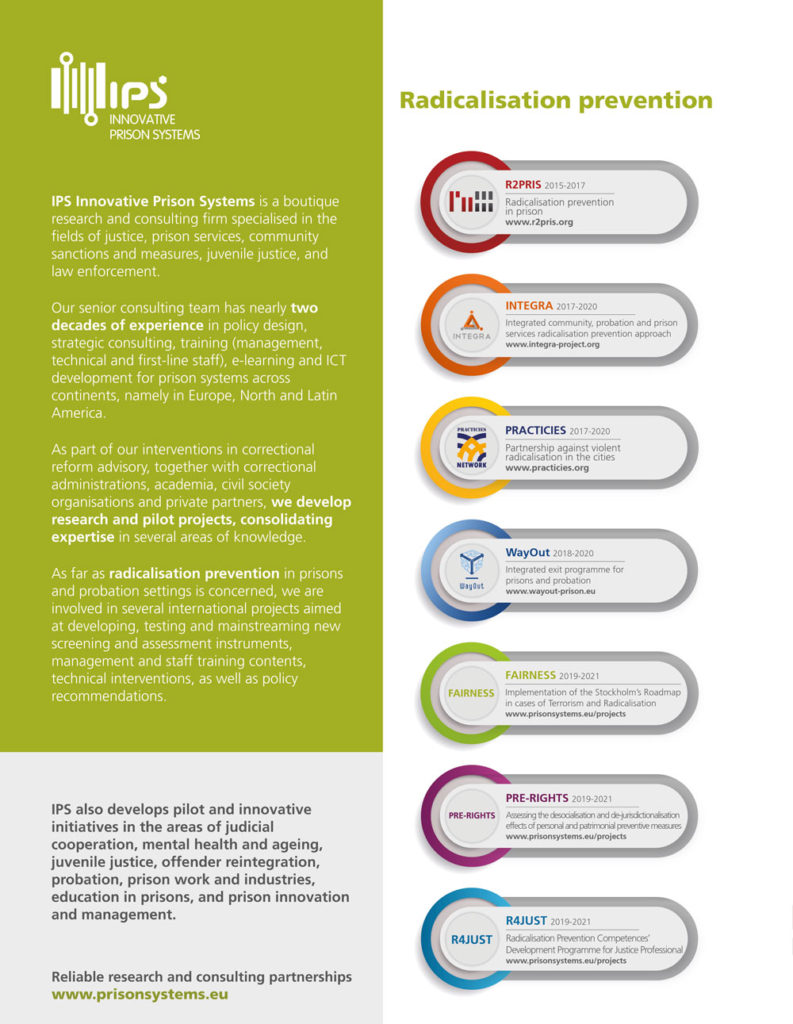// Interview: Nicole Belloubet
Minister of Justice, France
JT: The Justice Programming and Reform Act 2018-2022 is a voluminous document of 109 articles covering many aspects, but would it be possible for you to indicate the more fundamental aspects that mark a decisive turning point for French justice, with this legislative change?
NB:This law addresses all the challenges of justice, in a pragmatic approach, and secures the means at the disposal of justice to bring it closer to the litigant. It is therefore difficult to identify a flagship measure that would embody the very essence of the reform undertaken.
I would still mention a few emblematic measures. In civil matters, we will simplify the procedure for conflicting divorces and ease the constraints on persons under guardianship.
In criminal matters, simplifications are also made for the benefit of the investigation services. We will set up a flat-rate procedure to combat drug use more effectively. We will also experiment with criminal courts to speed up the trial of certain crimes, such as rape.
The sentencing policy has been profoundly renovated to make it more readable and more effective in the fight against recidivism. We will suppress sentences of less than a month and promote more appropriate sentences than prison for short sentences, such as electronic monitoring. At the same time, we will allow prison sentences to be carried out effectively, where appropriate in specifically adapted establishments.
The law also provides for a digital transformation of justice. By 2022, all civil and criminal proceedings will be fully dematerialised. However, I want to ensure that all litigants have access to justice. Our fellow citizens who are not accustomed to using digital means will still be able to continue to make referrals by “paper means”. They will also be able to go to the unique reception services for litigants (SAUJ, according to its French acronym) within the judicial court of their jurisdiction or anywhere in the territory, so they can be accompanied throughout the proceedings. By maintaining all the places of justice, I have chosen the proximity between justice and those who come into contact with the justice system.
JT: And more specifically in the field of criminal justice, including prison and social reintegration contexts, as well as community measures and sanctions, what changes will the reform bring? And whether this reform plans to eliminate the problem of prison overcrowding?
NB: Like all our fellow citizens, I have noted the triple failure of the criminal sanction system as it is today. It is difficult to measure because of the frequent discrepancy between the sentence imposed and that actually served. As a result, it is not understood by the offender, by the victims and by society as a whole. This loss of credibility greatly undermines its effectiveness. This system also gives too much importance to incarceration for short sentences, which is just not effective. The result is an “endemic” prison overcrowding that has led us to increase from 48,000 people detained in the early 2000s to more than 70,000 nowadays.
Finally, our system is not effective against recidivism, which concerns 41% of perpetrators, crimes and offences combined, and up to 63% for perpetrators of offences leaving prison without an adjustment of the sentence. This observation has, therefore, led me to propose a global overhaul of the sentencing policy.
I intend to move away from systemic incarceration, as, in many cases, imprisonment is not the most appropriate sentence for the nature and gravity of the facts, for perpetrators and for the situation in which they find themselves. Very short prison sentences of less than one month are prohibited and we are developing autonomous sentences, such as house arrest under electronic monitoring, community service or probation, which takes into account the consequences of the failure of criminal coercion and makes it easier to use a probation sentence.
This powerful reform, which comes into effect gradually until March 2020, is accompanied by a construction programme that will allow us to build 15,000 additional spaces, 7,000 of which will be delivered by 2022.
Beyond the increase in the number of spaces, which will contribute, with the sentencing reform, to combating prison overcrowding, we are implementing a diversification of the housing stock by creating establishments such as the SAS (French acronym for support structure for release) in order to encourage the individualisation of sentence paths and adapted care, taking into account the dangerousness of the detainees and their evolution.
These profound changes in the sanction system and in the tools for its implementation are essential to better combat recidivism.
The sentencing policy has been profoundly renovated to make it more readable and more effective in the fight against recidivism.
JT: Some of the measures in this bill have been partially censored by the Constitutional Council; the main censures concern provisions of the Code of Criminal Procedure that strengthen the powers of the public prosecutor. Thus, the provisions that made it possible to extend the special techniques (sound system of a place, image or computer data recording) to all crimes, in the context of an investigation in “flagrante delicto” or a preliminary investigation, have been censored. Moreover, the use of video conferencing for hearings to extend pre-trial detention has also been censored (Source: Le Monde, “La réforme de la justice partiellement censurée par le Conseil constitutionnel” (The Reform of Partially Censored Justice by the Constitutional Council), Jean-Baptiste Jacquin, 21 March 2019). What do these censures mean to you and to what extent do they hinder your Ministry’s aims for justice reform?
NB: The Constitutional Council has approved most of the provisions that will improve the work of investigators and magistrates in the Public Prosecutor’s Office. It thus validated the extension of pseudonymous investigations to combat cybercrime and the extension of the fixed fine to drug use. It also validated the creation of a national anti-terrorist prosecutor’s office and the experimentation with new criminal courts.
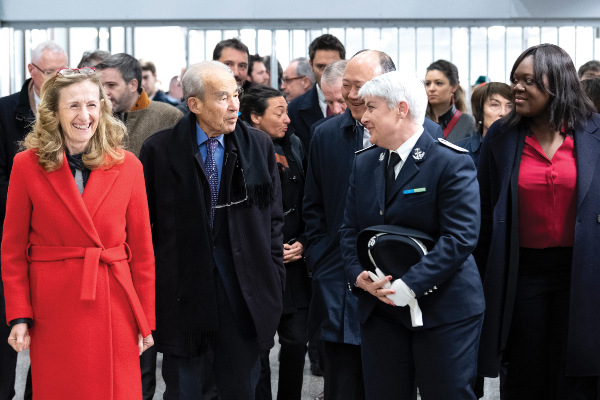
I have taken note of the decision of the Constitutional Council to maintain a more controlled, and therefore more complex, regime for wiretapping in investigations. I also noted that the Council has decided not to allow the use of video-audience for hearings to extend pre-trial detention, a procedure that it had validated for hearings ruling on appeals by foreigners detained in administrative detention centres only a few months ago.
I was a member of the Constitutional Council. I know the difficulty of the work carried out there, the fierceness of the search for a constant balance between guaranteeing fundamental liberties and the possibility of public action for the benefit of the community. I have the greatest respect for this unique institution, which guarantees our rule of law.
The law also provides for a digital transformation of justice. By 2022, all civil and criminal proceedings will be fully dematerialised.
JT: Decree 2019-98 of 13 February 2019, which amends the provisions of the Code of Criminal Procedure relating to the disciplinary regime for detainees, introduces new disciplinary sanctions, including the extension of the possibilities of resorting to disciplinary segregation. (Source)
What is the reason for this change and to what extent will it not be counterproductive?
NB: The February 2019 decree was issued in accordance with the plan to combat violence in detention, both against prison staff and between detainees.
The system of disciplinary sanctions for acts committed in detention was no longer adapted to the evolution of the offences committed and required clarification.
We have raised the seriousness of certain wrongdoings such as insults or threats against prison officers.
We have also created new disciplinary measures to deal with serious offences, such as violent refusal to comply or provocation to commit acts of terrorism. We have also provided the disciplinary committees with the means to adapt by creating, for example, community service.
The aim is not to extend the placement in the disciplinary unit but to ensure an appropriate response to misconduct, depending on its nature and seriousness, in order to better protect prison staff and detainees.
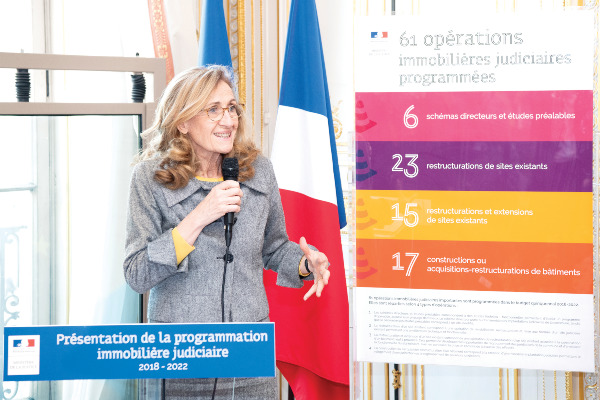
JT: In this justice system reform, what is the role of implementing new technologies and of digital modernisation?
NB: As soon as the justice projects were implemented in October 2017, I wanted a discussion to be carried out on digital technology and the impact of new technologies. Justice cannot remain outside the world and its evolution. Digital technology is taking on increasing importance everywhere. I see this as a tremendous opportunity, by reducing the distances, and sometimes the time, in order to bring justice closer to the litigant. Provided that this evolution is well thought out and its implementation organised; I have therefore developed a digital transformation plan based on three axes.
The first axis consists in upgrading the tools made available to magistrates and agents, in terms of both network and material equipment. It is a condition to make communication with the partners of justice more fluent, at the forefront of which are lawyers, notaries and bailiffs.
The second axis is the development of new applications that facilitate access to justice and the work of departmental officials, such as investigative services. These applications are now designed by placing the litigant at the heart of the system. For some months now, citizens can receive the extract of their criminal record on their smartphone. In the coming weeks, the portal will allow our fellow citizens to follow their proceedings online. In 2020, online judicial referrals will be possible. In 2022, we will have fully dematerialised civil and criminal proceedings.
The third axis consists in supporting both legal professionals and litigants. For the latter, as I mentioned earlier, reception services will help them in their efforts and for those who are not comfortable with digital technology but wish to use it, such services will help them through the various stages of their case.
By the end of the term of office, we will have dedicated more than half a billion euros to the success of this digital transformation.
I intend to move away from systemic incarceration (…) Very short prison sentences of less than one month are prohibited and we are developing autonomous sentences (…)
JT: President E. Macron personally committed himself to the aspect of reform concerning the meaning of sentences, seeking to change the culture that has made prison the reference in terms of criminal sanctions.
In practice, what is your strategy for implementing this change, since things on this ground may be the most difficult to get moving, especially if you do not have the support of lawyers and judges’ organisations?
NB: You are right, implementing a new sentencing policy requires the mobilisation of all key players. Judges and lawyers occupy a prominent place in this. Though they are not the only ones. Clerk’s staff, prison administration staff and all justice partners actively contribute to this.
The reform of sentences that I have carried out, at the request of the President of the Republic, is indeed ambitious. It aims, once again, to move away from systemic incarceration and to better combat recidivism. Its success requires a good understanding on the part of all the key players mentioned earlier. We will accompany the law with practical documents to enable legal professionals to understand it properly.
We will also mobilise our penitentiary, reintegration, and probation services (SPIP in French), which are being strengthened. They must, in conjunction with the associations that work for the courts, ensure that judges have all the necessary information to give appropriate sentences, such as electronic monitoring. By 2022, we will have recruited 1,500 additional staff in the reintegration and probation services to achieve this aim.
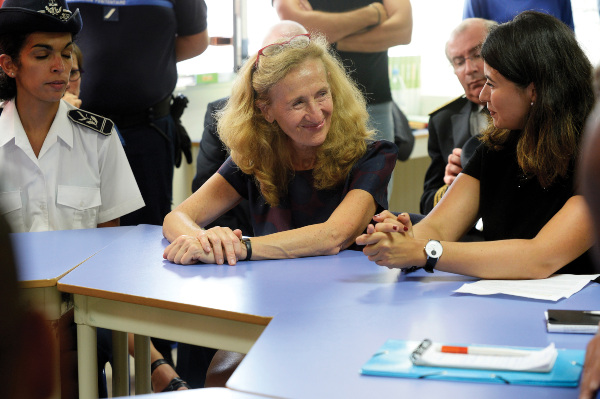
JT: What are the priority measures to address the growing problem of violent radicalisation, extremism and organised crime in prisons, and what measures have been taken in the French prisons to deploy prison intelligence?
NB: To address Islamist radicalisation, we have developed capacities to assess prisoners in specialised units. People who are susceptible to radicalisation spend 12 to 16 weeks there. As a result, the most dangerous detainees are placed in solitary confinement. Proselyte detainees are placed in watertight structures. We are developing programmes to promote the disengagement of violent radicalisation.
We have also developed prison intelligence, which has been strengthened by the Justice Programming and Reform Act. Its staff, which exceeds 300, will be further increased by around 100 agents by the end of 2020.
//
Nicole Belloubet was appointed Minister of Justice of France in June 2017. She holds a postgraduate degree in Public Law, a Diploma of Advanced Studies in Legal History and a Doctorate in Public Law. For five years, between 2000 and 2005, she was President of the Interministerial Steering Committee for the Promotion of Gender Equality in Education. She has been Member of the Constitutional Council from 2013 to 2017. In terms of electoral mandates, she has been City Councilor of Saint-Rémy-lès-Chevreuse (1989- 1996), First Deputy Mayor of Toulouse (2008-2010), Regional Councilor of Midi-Pyrènèes, and was First Vice-President in charge of Education, Higher Education and Research.
Advertisement


